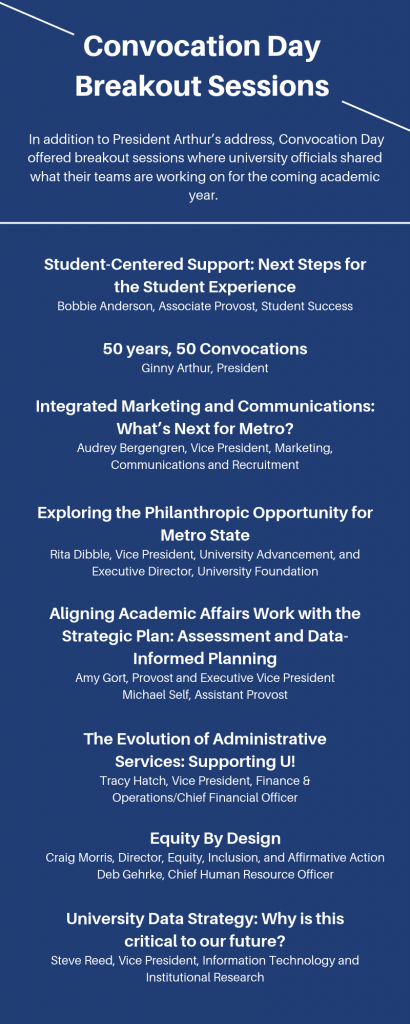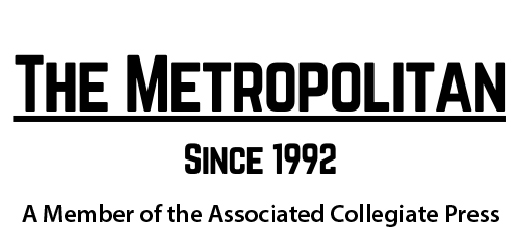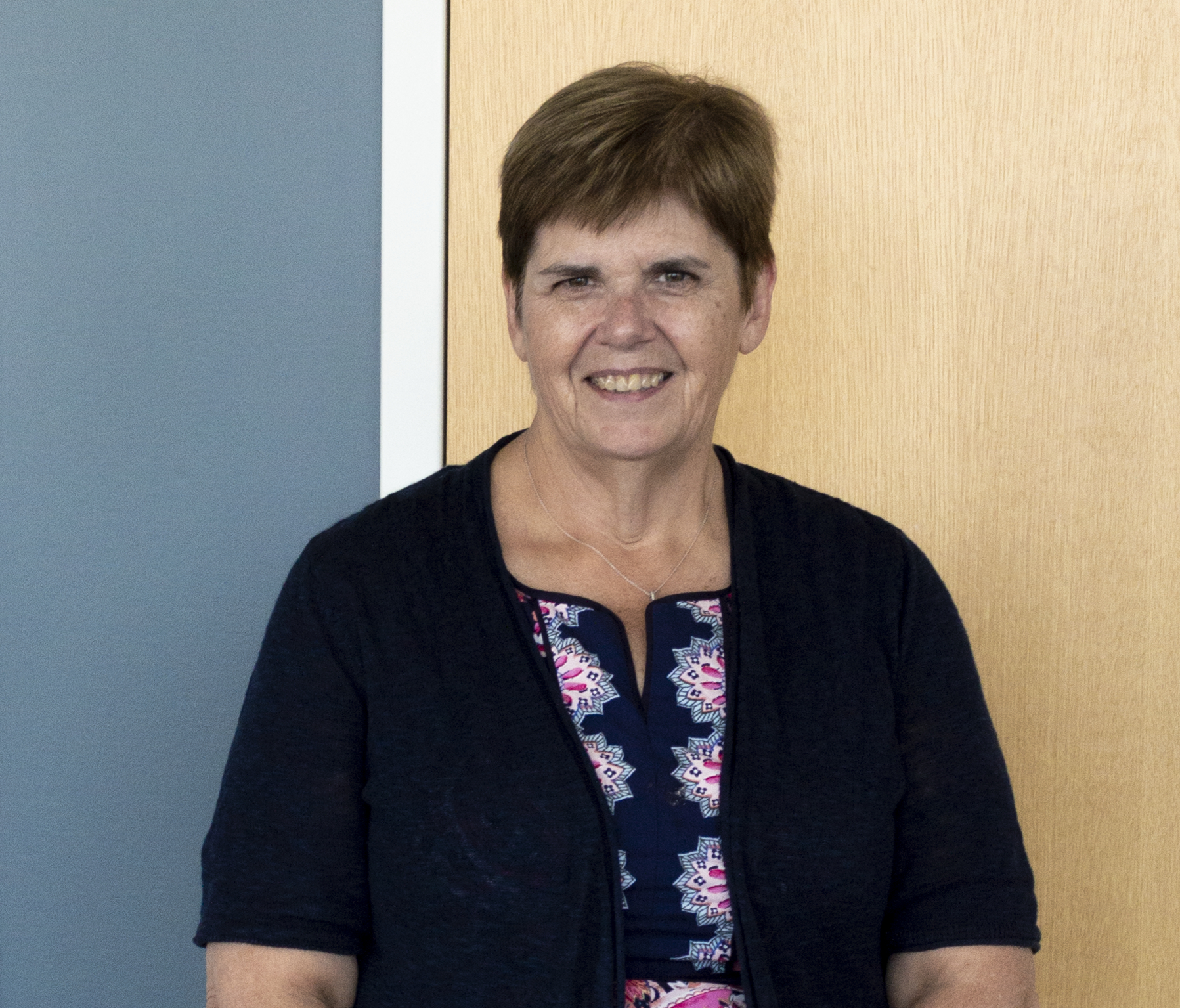Rachel Hagen
Share:
Occurring at the beginning of the fall semester, Convocation Day is an annual event to celebrate the start of a new academic year.
On August 21, President Virginia “Ginny” Arthur began Convocation Day with her “Welcome and Address” in Founders Hall Auditorium. She emphasized Metropolitan State University’s dedication to building a “resilient, student-ready university.”
Arthur encouraged attendees to initiate conversations with new faces as a way to strengthen campus belonging. Commuter colleges struggle with developing a community identity compared to traditional residential institutions, like the University of Minnesota , where shared geography can function as social cohesion.
In order to offer more effective student support services, Arthur advocated for increased attention to students’ needs.
Addressing the recent rise in tuition, Arthur said the 3% increase was an emotional and extremely difficult decision. The 2008 recession resulted in reduced funding from state government. Because Metro State’s board requires a balanced budget, the increase in student tuition was necessary to offset that deficit.
“[Higher education is seen as a] private consumption expenditure, not a public investment, and we’ve got to work to change that perception,” she said.
 The proliferation of technological advances is a concern for many students worried about their future job security.
The proliferation of technological advances is a concern for many students worried about their future job security.
Arthur emphasized that, although technology provides increased accuracy in data analysis, there are significant technological limitations.
For example, although advances in medical testing have provided greater accuracy in the diagnostic process, patients don’t want to receive their diagnosis from a computer. She used this example to illustrate that despite technological advances, interpersonal communication skills remain a critical component of many career fields.
According to Arthur, there is a growing need for students to develop skills in cultural competency, media literacy, cognitive load management and transdisciplinary learning to effectively address global issues.
She also emphasized the importance of learning how to collaborate in virtual spaces, which is increasingly pertinent, considering the increased demand for online workspaces.
Six Commitments
Arthur unveiled Metro State’s six commitments—part of the university’s strategic plan for the next 25 years.
Commitment 1: Student success
Student success will be measured by completing courses successfully, finishing degree programs and meeting learning outcomes.
Commitment 2: High-quality education for non-traditional students
Metro State will continue its long-standing support for working adults and non-traditional students.
Commitment 3: Innovative teaching
Innovative teaching improves the learning environment, which can yield better learning outcomes for students.
Commitment 4: Community building
The development and maintenance of community relationships with businesses, nonprofits, donors and alumni will strengthen Metro State’s presence and impact in the community.
Commitment 5: Cultivation of diversity
Metro State will uphold a culture of respect, equity and inclusion for all Metro State community members.
Commitment 6: Institutional stewardship
Metro State will improve its institutional efficiency, effectiveness and sustainability.
Arthur summed up the total vision of these commitments at the close of her address. “As a community, we are committed to changing the world, one student, one family and one community at a time,” she said.



